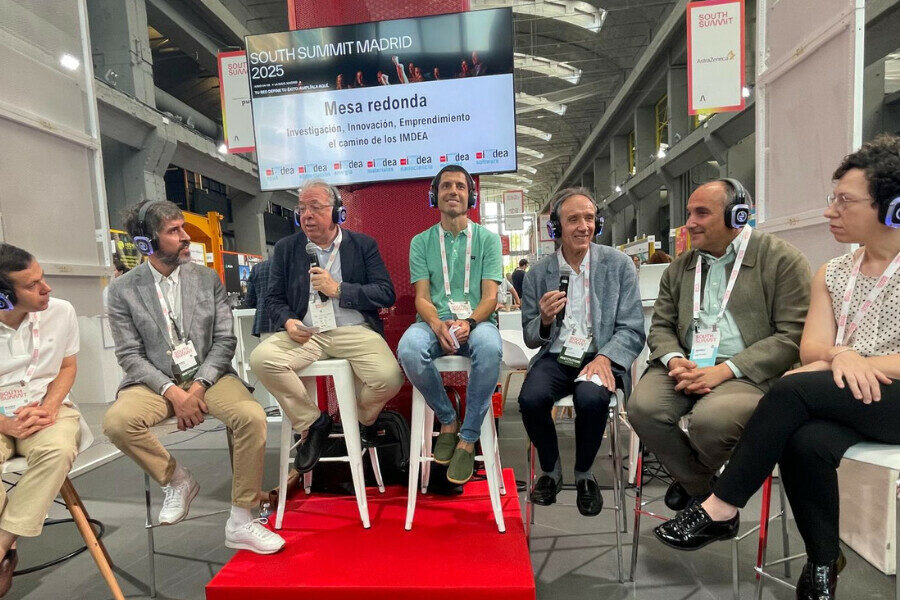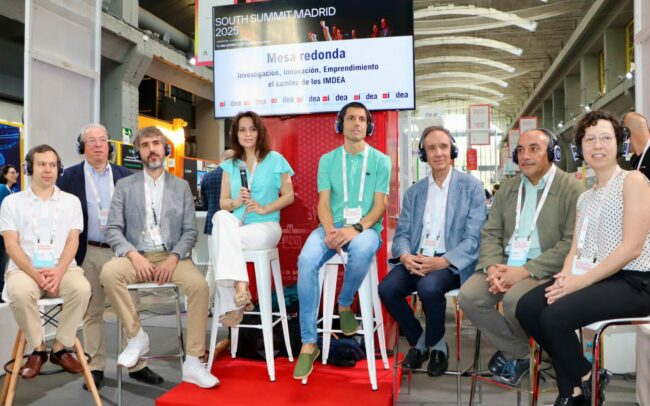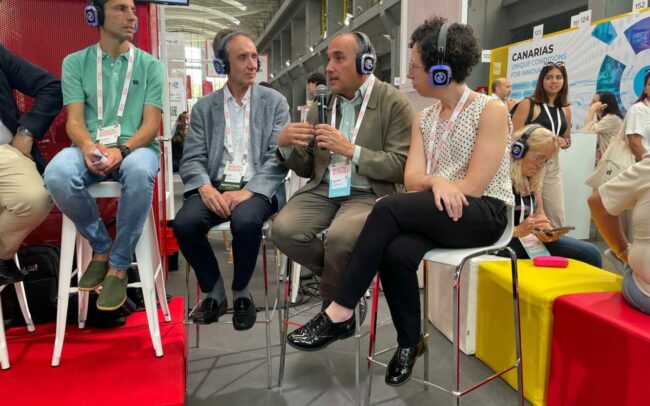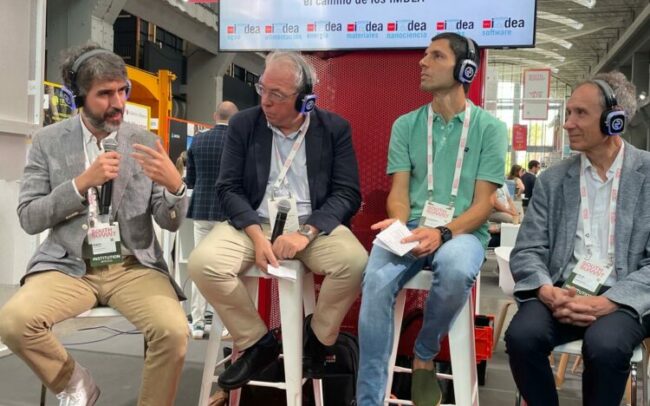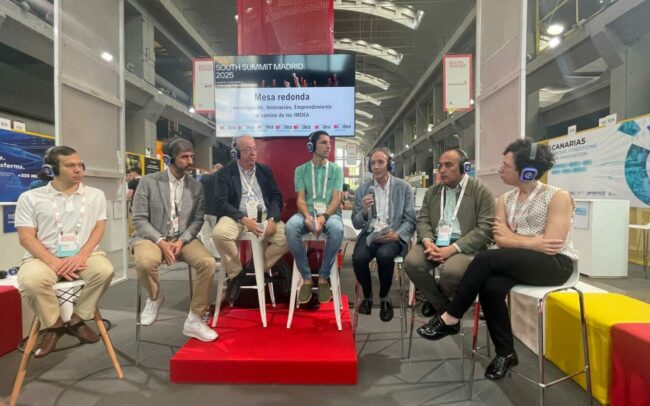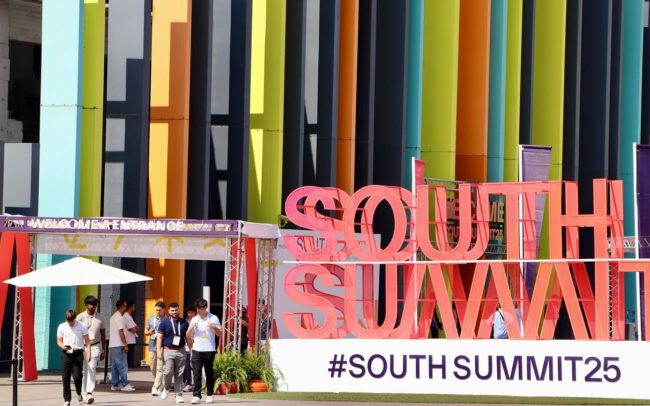IMDEA Energy at South Summit Madrid 2025
The 14th edition of South Summit 2025, the largest annual event for the entrepreneneurial ecosystem in Southern Europe, was held at La Nave in Madrid from 4 to 6 june under the motto “In motion”. It serves as a global meeting and networking platform for entrepreneurs, investors, tech-based companies (startups), corporations, and research centres developing technologies with potential for market uptake through new enterprises.
This year´s edition brought together over 20,000 attendees, who had the opportunity to connect with more tha 7,500 startups and over 2,100 investors from 134 countries.
Representing IMDEA Energy was Félix Marín, head of Technology Development and Transfer, who took part in the business matchmaking sessions with representatives from tech-based companies such as Cooling Photonics and Trimble, large corporations including Ferrovial, Masorange, Moeve, Repsol, and Sacyr, as well as investors and entrepreneurship support organisations.
Félix also took part in the rountable discussion “Research, Innovation, Entrepreneurship: the IMDEA Path”, opened by Ana Ramírez de Molina, deputy Minister for Universities, Research and Science of the Madrid Regional Goverment, and moderated by Vicente Parras, deputy Director General for Technological Innovation. Participants from various IMDEA Institutes shared the work being carried out at their respective centres, focusing on how research is transformed into innovation and entrepreneurship through concrete examples.
Félix highlighted how IMDEA Energy maintains a long-term strategic collaboration with tech-based companies aimed transferring proprietary technologies, co-developing new technologies, and facilitating their market entry. He emphasised that the so-called “valley of death” also relates to technology development, validation, and scaling-up, and underlined the importance of expanding the scope of research lines.
Finally, he presented the Institute’s forward-looking opportunity radar, structured around four strategic pillars:
-
Decarbonisation, focusing on technologies such as green hydrogen (including electrolysers, fuel cells, and hybrid systems), as well as sustainable mibility solutions (electrification and alternative fuels, among others).
-
Digitalisation, including the integration of AI, digital twins, loT, energy management systems (EMS), and new business models based on blockchain.
-
Decentralisation, by promoting energy self-consumption, battery development and use, and flexible generation and demand management.
-
Circular economy, with initiatives centred on second-life batteries, the recycling of critical materials, and waste valoristaion.

